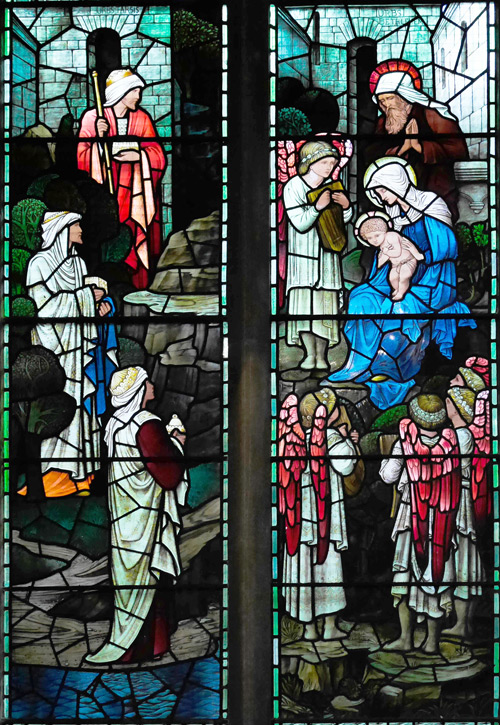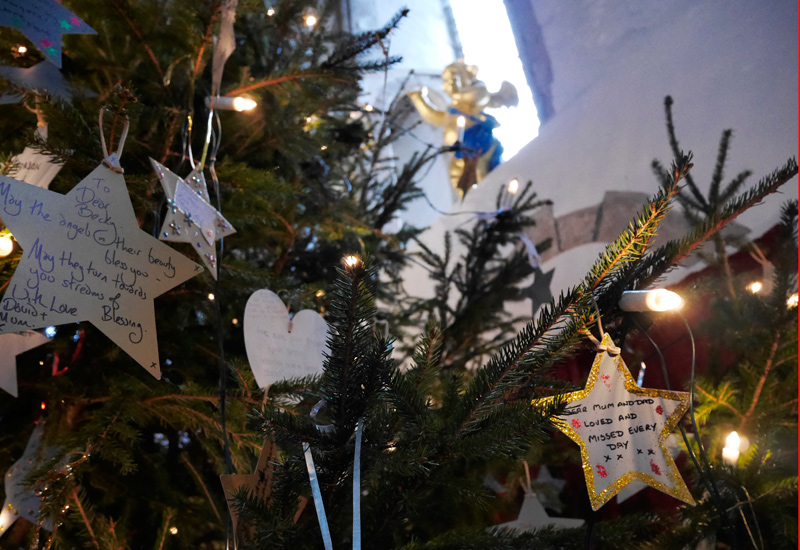Everyone has memories of the way Christmas was celebrated in their childhood and the various family traditions that would always take place. It didn’t matter that no other family did them; your family did, and that was all that mattered.
For the Frost family, Christmas Day was actually Boxing Day. My Baptist minister father was of the firm opinion that Christmas Day was about worshipping God and therefore we spent a lot of the day in church. We unwrapped presents and had a special meal a day later, when most people were still recovering from the day before.
One of the principles that was drilled into me as a child was the importance of looking out for people who had less than me. A small proportion of my pocket money was given away every week as soon as I received it. Every Saturday morning my father would give it to me and then watch as I dropped my donation into the strategically positioned box. In case you think I’m some paragon of virtue, this was deeply resented by me and, on several occasions, when the ritual was disrupted by the telephone ringing or by someone at the front door, I put in only half what I had promised. I felt guilty afterwards though, as I had decided where my money was going (with my parents’ help) and it was always charities that helped kids of about my age.
Mind you, my family didn’t just give to charity, we received it too. Baptist ministers weren’t paid much in the 1960s, and I only found out when I was older what a struggle Christmas was for my parents. Although we always got a present and a stocking, my parents didn’t give anything at all to each other, and we had a turkey only because a kind Salvation Army officer who lived in the same street was given two and she made sure we had one of them. Even wrapping paper was recycled, as my mother always carefully wrapped presents with Christmas paper and then did them up with wool. The rule was that we broke the wool, took off the paper and gave it to my mother, who ironed it and kept it for the next year.
If you go back into history, Christmas has always been thought of as a time of giving. One of the nursery rhymes that I remember chanting was Christmas is Coming, and you may remember it too:
Christmas is coming, the goose is getting fat, Please to put a penny in the old man’s hat. If you haven’t got a penny, a ha’penny will do, If you haven’t got a ha’penny then God bless you!
The meaning that is conveyed to a child in this nursery rhyme is that the festive period is where each should give to charity, according to means . . . even if all they could give was their blessing (If you haven’t got a penny . . .).
These days we all have many opportunities to give our money away, either in cash or goods. One of the new ways that people in Rye and District can give is to the Rye Foodbank that was officially launched on December 4. It’s part of the Trussell Trust and a branch of the one started in Bexhill a couple of years ago. Ever since the last financial crisis these banks have been springing up all over the western world, including Britain. According to a May 2013 report by Oxfam and Church Action on Poverty, about half a million Britons have used them, and the Trussell Trust reports that its food banks alone helped feed 346,992 people in 2012-13.
If you want to help then it’s very simple. There are now clearly marked metal bins in local supermarkets and churches. On the bins there is a list of the things that are needed (mostly non-perishable food) and you simply put your tins or packets into the bin and a team of people will do the rest. All we would ask is that you give what is actually needed, and what you give is in date, as the foodbank is not allowed to give out food that is past its sell-by date. For more information about how the foodbank works, you can visit its website. The Rye branch operates from the Baptist Church in Cinque Ports Street on Thursday mornings from 10am until 12 noon. If you would like to volunteer to work in the foodbank there are more details on the website.
If you look back to the original Christmas story it’s all about poverty and generosity. Carpenters weren’t well off and Mary and Joseph didn’t have much money. They found themselves in a strange city, full up with people who had arrived for a Roman census, with Mary about to give birth. Jesus was born in a stable because of the generosity of an innkeeper, and through his ministry he identified with people who had very little. He slept in homes only because of the generosity of friends; he never owned anywhere himself. Even the tomb in which he was laid after his crucifixion belonged to someone else.
Christmas in the UK is still a Christian festival, when followers of Jesus Christ give thanks for his birth. He was God’s Christmas present for the world. But this festival has been adopted by everyone, including those of no faith at all, and we can all afford to be generous, whether we’re rich or poor or somewhere in between.
Next time you’re out shopping, why not buy two tins rather than one and put one in the foodbank bin? Although you won’t know its ultimate destination, you can be sure that you will help someone else to have a Happy Christmas!

Canon Frost is rector of St Mary’s church, Rye / Photos: Tony Nunn
Image Credits: Rye News library .



